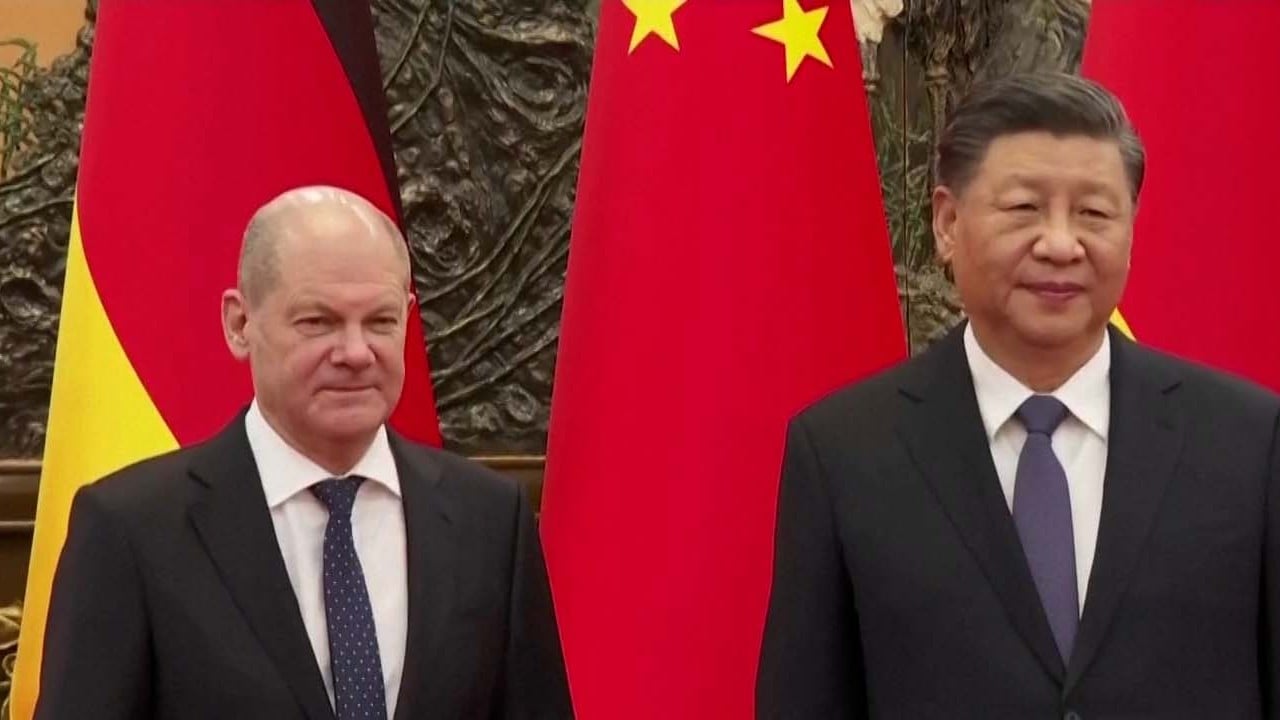It also warned: “The political landscape has changed significantly in recent times and topics such as protection against scientific and industrial espionage, data security and safeguarding intellectual property also post a challenge for our FAU.”
It also said its previous collaboration with the Chinese telecoms giant Huawei – which has been blacklisted by the United States and excluded from several Western broadband networks over security concerns – had been the cause of growing international concern. It said that as a result it would not sign any more research or partnership agreements with the firm in future.
Lu Mengji, a Chinese virology professor at the University Hospital of Essen, said this type of contract was nothing new and recipients of grants from the CSC did not take these commitments seriously, but Germany was suddenly concerned because of the broader political situation.
Some observers warn more German institutions may impose restrictions on Chinese students and researchers. Photo: Shutterstock
He said the announcement from Friedrich Alexander University was a one-off, but added: “Other German universities are cautious about taking similar steps, partly because CSC-funded students can help ease their financial concerns, but in the current political climate, German research institutions will be more alert to avoid any related spying risks.”
Lu added: “In my impression, the CSC office is just a small department, and I don’t think it has the ability and intention to organise so-called ‘espionage’ activities.”
According to the CSC’s website, this year the state-run institute plans to send 25,000 students – ranging from undergraduates to postdoctoral students and visiting scholars and researchers – overseas.
Germany has long been a popular destination for Chinese students, but the decision by Friedrich Alexander University is the latest example of academic institutions across the European Union reducing their openness to China.
According to the German media outlet Correctiv, around 30 universities in the country have accepted CSC scholarship holders, with more than a thousand believed to have come to Germany under the scheme since 2009.
It has outlined plans to withhold federal support from research projects where there is a risk of technological know-how, expertise, or even patents being acquired by China, as well as promising to make German academics better aware of the security risks of cooperation.
In June Germany’s Federal Office for the Protection of the Constitution said China was Germany’s “greatest threat in terms of economic and scientific espionage”, highlighting that research cooperation was a way for China to obtain German technology and know-how.
A scientist working for the Max Planck Society, Germany’s premier non-university research organisation, said that even before the FAU ban, branch research institutes had been warned to be careful about the CSC contract.
He said it risked putting Chinese students at a disadvantage because the need to report to the Chinese embassy could lead to them being regarded unfavourably by German academia.
But the scientist, who spoke on condition of anonymity, added: “There is no unified policy indicating the Max Planck Society will halt accepting Chinese students in the CSC scheme; the FAU case is atypical.”
Bettina Stark-Watzinger, the German education minister, backed FAU’s decision in an interview with a Bavarian media outlet, and identified students funded by Beijing as a particular risk.
“Research institutions and universities in Germany have a responsibility to safeguard themselves against espionage activities conducted by students receiving scholarships from the Chinese government,” she told Mediengruppe Bayern.
However, the university said researchers funded by a joint postdoctoral scholarship programme run by the CSC and German Academic Exchange Service (DAAD) would be exempt from the ban.
It said the DAAD had a structured process for admitting guest scholars, which must comply with the requirements of the Federal Office for Economic Affairs and Export Control, also known as BAFA.
Research projects in public institutions, especially those involving confidential technologies, must undergo regular audits by BAFA, which is responsible for overseeing compliance with export restrictions on sensitive goods, software, and technology – particularly those that could have military applications.
In response to questions, Friedrich Alexander University said that during one such audit “we were informed that FAU has to set up a structured process for the acceptance of guest researchers in order to be in line with BAFA requirements and export control”.
It added that its decentralised structure meant it had “weaknesses in processes, which we are now examining and revising” without elaborating further on what those weaknesses were.
Lu suggested that the university may be using the CSC contract with students as an excuse for placing restrictions on Chinese researchers and said the “audit is the real reason, I suppose”.
The university said it could not comment further on the issue.
Lu oversees international exchange and cooperation issues with China at his university and said that in the past faculty members who recruited Chinese students had to sign a contract with the state government to prevent sensitive information or technology leaking.
But he said that if tensions between the two nations intensified, the university might consider formalising its procedures for telling staff and students of their responsibilities.



